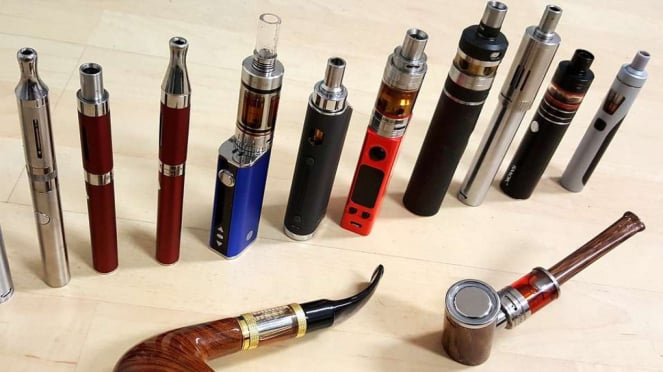Vape May Help Adult Smokers to Stop, Study Says
- Eat This
Switzerland – Vape is an effective aid to quitting smoking tobacco cigarettes. However, they don't help to reduce nicotine dependence. This is shown by the results of the world's largest study on this topic, which was conducted by a Swiss-wide interdisciplinary research group led by the University of Bern.
Vapes, also called e-cigarettes or electronic nicotine delivery systems (ENDS) are electrically powered devices that emit nicotine in the form of vapor.
Unlike tobacco cigarettes, they are tobacco-free and deliver significantly lower levels of toxic compounds.
Vapes are used by tobacco smokers, among others, to quit smoking cigarettes. So far, however, there is insufficient data on how safe vapes are when they are used over longer periods and as part of intensive smoking cessation counseling, as offered in Switzerland.
The world's largest study on this topic has now been conducted, involving researchers from the fields of family medicine, pulmonary medicine, toxicology, addiction medicine and epidemiology with five study centers in Switzerland (Bern, Geneva, Lausanne, Zurich, St. Gallen), led by the University of Bern.
Macam-macam bentuk rokok elektrik atau vape.
- dok. pixabay
The study compared the efficacy, safety and toxicology of vapes as part of intensive smoking cessation counseling compared to equally intensive smoking cessation counseling without vapes.
The smoking cessation counseling in both groups included intensive behavioral support as well as recommendations to use smoking cessation medication and nicotine replacement therapy.
The results, which were published in The New England Journal of Medicine, show that vapes are more effective for smoking cessation than conventional smoking cessation counseling without vapes, and they have few side effects. However, they do not help to kick the nicotine habit.
"Our study confirms previous findings that vapes are effective to quit smoking tobacco. It also shows the benefits they bring in the context of intensive smoking cessation counseling, as we have in Switzerland," said Reto Auer as studey leader from the Institute of Primary Health Care (BIHAM) at the University of Bern and from Unisanté, University Center for Primary Care and Public Health in Lausanne.
Over a period of six months, a total of 1,246 participants in the two groups were surveyed and clinically examined in the five study centers in German-speaking and French-speaking Switzerland.
Health-related adverse events were recorded in detail. The results showed that the addition of vapes to intensive smoking cessation counseling increased abstinence from tobacco smoking by 21 percent.
The abstinence rate from tobacco smoking was 53 percent in the group with vapes and 32 percent in the group without vapes (67 percent more abstinence with vapes compared to no vapes).
However, many people who stopped smoking tobacco continued to use vapes and thus with nicotine. Accordingly, nicotine abstinence was lower in this group.
The difference was 14 percent (20 percent nicotine abstinence in the group with vapes compared to 34 percent in the group without vapes).
In terms of side effects, serious adverse events did not occur more frequently in the group with vapes than in the group without vapes.
"This speaks for the safety of vapes in smoking cessation counseling in light of the study's large scope," Auer remarked.
On the other hand, more mild side effects such as airways irritation were found.
"This can be explained, among other things, by the fact that the nicotine in vapes irritates the throat more than conventional cigarettes, which contain additives to alleviate precisely these symptoms," Auer explained.
Health problems such as cough and sputum production were lower in the group with vapes than in the control group (41 percent less participants reporting cough compared to 34 percent).
The researchers see a pragmatic approach in recommending vapes to smokers instead of leaving them alone with their dependence and the health consequences of their habit.

































